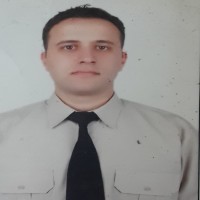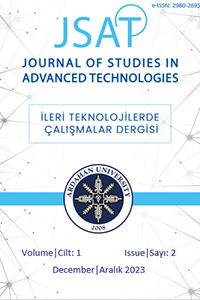Research Article
Aim & Scope
The aim of the JSAT is to encourage researchers to publish quantitative, qualitative, or mixed methods studies on advanced technology-related topics.
The Journal of Studies in Advanced Technologies (JSAT) is a scientific and peer-reviewed journal that accepts original research articles, short articles and reviews in Turkish and English, covering all fields of Engineering and Science, where interdisciplinary studies are encouraged.
Author Guidelines
The contents of the articles submitted to the Journal of Studies in Advanced Technologies must be original, not previously published anywhere or sent for publication. The submitting author (especially corresponding author) must ensure that all authors have read and approved the submitted version of manuscript. The journal reserves the right to make appropriate corrections in language and spelling where it deems necessary. Manuscripts can be sent back to the corresponding author for revision when necessary. The articles published in the journal become the property of the journal and the copyright of the articles is taken in the name of "The Journal of Studies in Advanced Technologies". Even partially or completely, the published articles cannot be used anywhere without showing the source. Manuscripts previously published in any language are not considered for publication in the journal.
All of the following files should be uploaded to the system at the stage of submitting an article to our journal:
• Similarity Report
• Submission Declaration
• Copyright Transfer Form
• Ethics committee approval (If your study requires ethics committee approval, you must upload your article with ethics committee approval, if not, indicate it in a section of the article)
The Journal of Studies in Advanced Technologies requires the author(s) to check the entire text of each article sent to the journal with the "iThenticate®" plagarism program, except for the references section, and upload the article scanned in this program to the "Similarity Reports" field. The similarity rate determined by the Editorial Board is maximum 20% for research articles, 25% for review articles, and even within these limits, the similarity rate in a single source is maximum 5%. Articles with similarity rates above the specified rates will not be evaluated.
Name(s) and surname(s), institutional titles of the author(s); The institution(s) and e-mail address(es) of the author(s) should be stated in the "Application Statement" file and should not be given in the manuscript to be uploaded.
The Journal of Studies in Advanced Technologies (JSAT) accepts free format submission.
We do not have strict formatting requirements, but all manuscripts must contain the required sections: Abstract, Keywords, Introduction, Materials & Methods, Results, Conclusions, Figures and Tables with Captions, Funding Information, Author Contributions, Conflict of Interest and other Ethics Statements.
Your references may be in any style, provided that you use the consistent formatting throughout. It is essential to include author(s) name(s), journal or book title, article or chapter title (where required), year of publication, volume and issue (where appropriate) and pagination. DOI numbers (Digital Object Identifier) are not mandatory but highly encouraged. The bibliography software package EndNote, Zotero, Mendeley, Reference Manager are recommended.
When submitted manuscript reaches the revision stage, the journal publication template will be sent to the author(s) and requested to format the manuscript according to journal template.
Ethical Principles and Publication Policy
ETHICAL CONSIDERATIONS
All articles submitted to Journal of Studies in Advanced Technologies should be based on original work and must not be published before. Likewise, the authors should not submit the same manuscript to other journals for consideration at the same time. Each manuscript is first checked by the Editorial office and goes through a blind peer-review process, with at least two referees. Plagiarism, duplication, false authorship/denied authorship, research/data fabrication, article slicing, slicing, copyright infringement, and concealment of conflict of interest are considered unethical behaviors.
All articles that do not comply with accepted ethical standards are removed from the publication. This includes articles with possible irregularities and inconsistencies detected after publication.
In case of possible scientific unethical behavior and ethical publication violation, Committee on Publication Ethics (COPE) Guidelines are taken into account
PUBLICATION POLICY
Manuscripts to be sent to the journal must first be approved by the Editorial Board. In addition, the articles are evaluated by at least two referees. Manuscripts should not exceed 20 pages in total, including the main text, references, charts, figures, and photographs. The responsibility of the articles published in the journal belongs to the author. When submitting a manuscript to the journal, the authors are deemed to have accepted that their studies have not been previously published or sent for publication in another scientific publication.
PUBLICATION LANGUAGE
Publication languages are Turkish and English.
PUBLICATION FREQUENCY
The journal is published twice a year (June and December)
COPYRIGHT
The authors are responsible for their opinions and suggestions in the articles and the accuracy of the resources they used. No copyright is paid to the articles published in the journal. The authors agree to transfer the copyright of the articles accepted for publication to Journal of Studies in Advanced Technology (JSAT).
OPEN ACCESS POLICY
Open access increases global access to information. Journal of Studies in Advanced Technologies (JSAT) adopts an open access policy.
Journal of Studies in Advanced Technologies (JSAT) can be used, reproduced, and shared, provided that the source is cited in the context of open access policy. The official website of the journal is https://dergipark.org.tr/en/pub/jsat. Readers can access all published articles in the journal from this link.
ARTICLE EVALUATION PROCESS
This journal uses double-blind review, which means that both the reviewer and author identities are concealed from the reviewers, and vice versa.
The manuscripts submitted to the journal are subject to peer-reviewing as well as a preliminary evaluation of the Editors and Editorial Board if necessary. Evaluations are made in accordance with the following criteria;
· Compliance with the scope and subject areas of the journal
Plagiarism check
· Compliance with the scientific rules of the journal
· Publication language (abstract, adequacy of keywords, structured abstract translation, etc.),
After the preliminary evaluation process is completed, two main and one substitute reviewers are invited to review, depending on the subject and content of the manuscripts.
First, the manuscript's abstract is sent to the reviewers. The reviewers must declare within 7 days whether they accept reviewing or not. If the reviewers accept the invitation, a full-text file of the manuscript is sent to them. The review period is a maximum of one month. The reviewers evaluate the manuscript on a standard evaluation form sent to them. In addition, if the reviewers wish, they can submit their notes stating their suggestions and opinions.
There are 4 options at the end of evaluation process for the reviewers
· Accept
· Minor revision. (Whether or not the revisions are made is decided by the referee and/or the editorial board).
· Major revision. (After the revision is received by the author(s), it is evaluated for the second round).
· Cannot be published.
If revisions are requested by the referees, the article is directed to the author(s) for necessary actions. The author(s) should submit their revisions within a month. When submitting the revised texts, the author(s) should submit a report containing the list of revisions made according to the suggestions of the editor and the reviewers as a separate file. Revisions made by the author(s) are sent to the reviewers for another round of evaluation which is a 15-day evaluation period. According to the re-evaluation of the reviewers; authors can be asked to revise the article again, the article can be published or rejected with the approval of the editorial board. The final statement of evaluation is sent to the responsible author.
In line with the opinions of the reviewers, 3rd or 4th reviewers can be appointed with the same procedure described above.
Peer reviews guide the Editors and Editorial Board to make their Final Decision. The final decision always rests with the Editors and the Editorial Board.
Price Policy
İleri Teknolojilerde Çalışmalar Dergisi gönderilen makaleler için herhangi bir yayın ücreti talep etmemektedir.
Indexes
Other Indexes
Journal Boards
Editör
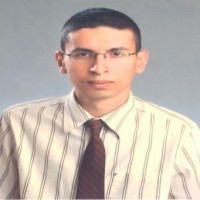

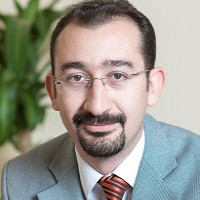

Dergi Kurulu
Asıf Yokuş, matematiksel fizik ve uygulamalı analiz alanlarında çalışan disiplinler arası bir araştırmacıdır. Akademik kariyerinde özellikle doğrusal olmayan diferansiyel denklemler, soliton teorisi ve sismik dalga, kimyasal süreçler, opsiyon fiyatlama ve finansal modellemeleri üzerine yoğunlaşmıştır. Yokuş'un çalışmaları, klasik fiziksel modeller ile modern matematiksel tekniklerin kesişiminde yer almakta; kink ve peakon soliton çözümleri gibi yapıların doğadaki enerji taşınım süreçlerini nasıl temsil ettiğini incelemektedir.
Son dönem araştırmaları, Klein-Gordon tipi yüksek mertebeden doğrusal olmayan dalga denklemleriyle Rayleigh dalgaları arasındaki ilişkiyi kurarak, yer kabuğundaki yüzey dalgalarının matematiksel simülasyonlarına yeni bir perspektif kazandırmıştır. Aynı zamanda kimyasal kinetikte dinamik hareket eden dalga modellerde doğrusal olmayan dispersiyon analizi gerçekleştirmiştir. Yokuş, Jacobi eliptik fonksiyonları ve analitik yöntemleri kullanarak elde ettiği çözümleri, hem teorik hem de grafiksel olarak değerlendirmekte ve bu çözümleri, matematiksel perspektif ile jeofizik, kimya, fizik bağlamda enerji yoğunluğu analizleriyle ilişkilendirmektedir.
Bilimsel üretkenliğinin yanı sıra, Yokuş aynı zamanda genç araştırmacıların farklı disiplinlerde ortak çalışmalara yönlendirilmesi konusunda da aktiftir. Analitik yöntemlerin fiziksel olayların modellenmesindeki rolünü vurgulayan yayınları, çeşitli ulusal ve uluslararası sempozyumlarda sunulmuş ve birçok çalışmaya kaynaklık etmiştir.
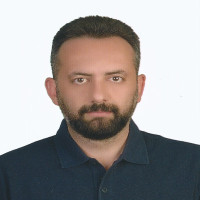
Yayın ve Danışma Kurulu





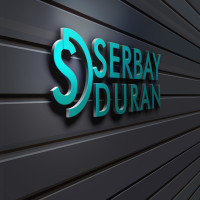

Mizanpaj Editörü
Nihat Emre Börekçi

Dil Editörü
